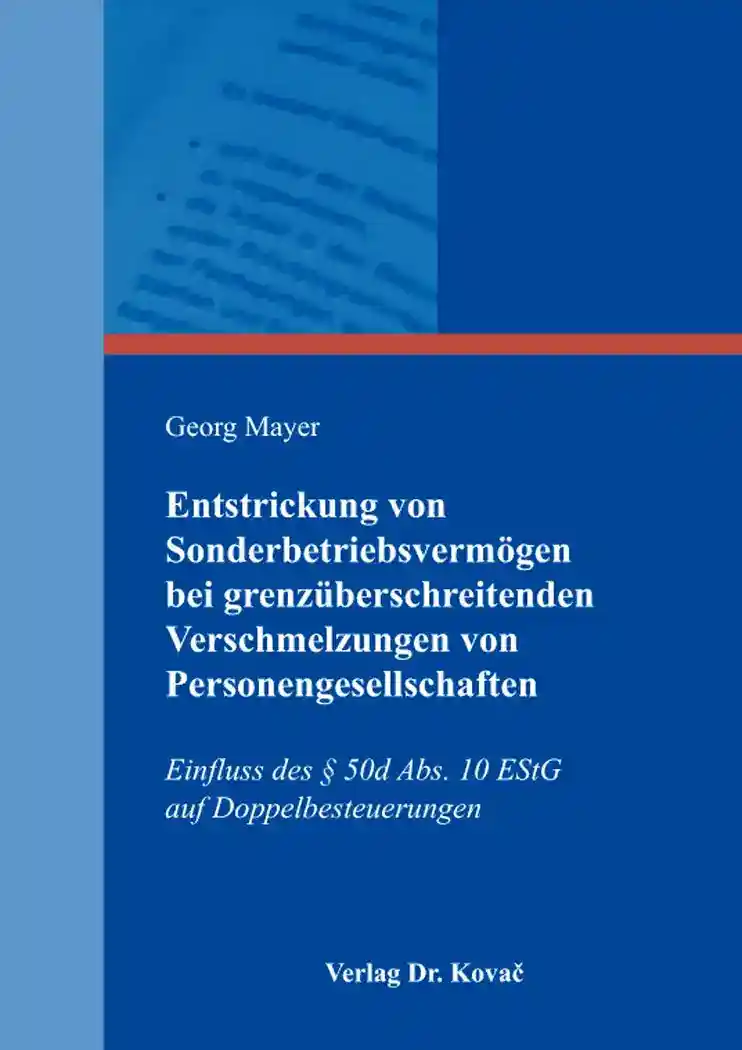Georg MayerEntstrickung von Sonderbetriebsvermögen bei grenzüberschreitenden Verschmelzungen von Personengesellschaften
Einfluss des § 50d Abs. 10 EStG auf Doppelbesteuerungen
Betriebswirtschaftliche Steuerlehre in Forschung und Praxis, volume 115
Hamburg 2017, 372 pages
ISBN 978-3-8300-9403-6 (print) |ISBN 978-3-339-09403-2 (eBook)
About this book deutschenglish
Mergers occur more often between international acting partnerships. Hereby it is important to focus on the tax effects. For keeping the book value and keeping the merger tax-neutral, the transfer of essential operational bases assets is mandatory, including the business assets of partnership owned by one of the partners. In double taxation treaties business assets of partnership owned by one of the partners can be part of business profits, as well as one of the special income articles. This subsumption depends on the civil law recognition of the contracting states for the agreement between partner and partnership. This can result in objective qualification conflicts.
With the treaty override in § 50d Abs. 10 EStG the business assets of partnership owned by one of the partners are allocated to the permanent establishment of the partnership. As a consequence, this can result in double taxation or double non-taxation of unrealized gains in business assets of partnership owned by one of the partners through the cross-border-merger.
This study examines the influence of § 50d Abs. 10 EStG for exit taxation of business assets of partnership owned by one of the partners throughout several cross-border-merger constellations between partnerships. Questions of exit taxation are also discussed for parent partnerships and in Inbound- and Outbound-cases.
Link des Autors
Kontaktmöglichkeit
Keywords
DoppelbesteuerungGrenzüberschreitende VerschmelzungPersonengesellschaftSonderbetriebsvermögenSondervergütungenStille ReservenVermögensabgrenzung§ 50d Abs. 10 EStGIhr Werk im Verlag Dr. Kovač

Möchten Sie Ihre wissenschaftliche Arbeit publizieren? Erfahren Sie mehr über unsere günstigen Konditionen und unseren Service für Autorinnen und Autoren.
